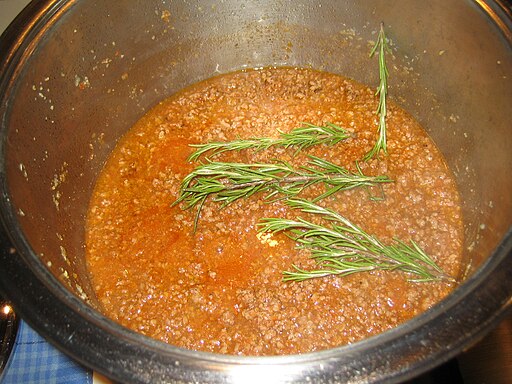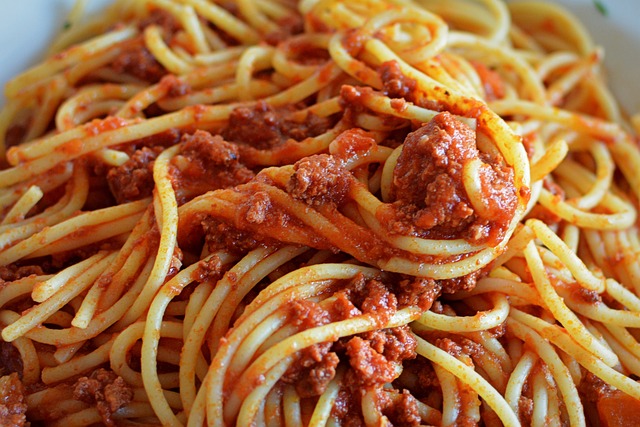Ragu is a broad term for Italian meat-based sauces, while Bolognese is a specific type of ragu originating from Bologna, containing meat, tomatoes, and wine.
TL:DR Ragu Vs. Bolognese
Ragu is a slow-cooked meat sauce with various ingredients like tomatoes, vegetables, and wine. It has a rich and hearty flavor that pairs well with pasta or polenta.
Bolognese is a specific type of ragu originating from the city of Bologna. It follows strict guidelines regarding its ingredients and preparation method. Bolognese typically includes ground beef or pork, soffritto (a mixture of finely chopped onions, carrots, celery), tomato puree or paste, milk or cream to add richness, and sometimes red wine.
What is to ragu?

“To ragu” refers to the process of preparing a rich, slow-cooked Italian sauce, typically made with ground or minced meat, tomatoes, vegetables, and various seasonings.
Ragu is simmered over a long period, allowing the flavors to meld and intensify. It can be made with different types of meat, such as beef, pork, or a combination, and is often used as a sauce for pasta.
Ragu is known for its depth of flavor and versatility, making it a staple in Italian cuisine. It can vary in regional recipes, with Bolognese ragu, for example, being a well-known variation from the city of Bologna.
What is to bolognese?

Bolognese, also known as ragù alla bolognese, is a classic Italian meat sauce that originated in the city of Bologna. It is a rich and hearty sauce, typically made with ground beef or pork, along with diced vegetables such as onions, carrots, and celery.
The key to an authentic bolognese lies in its slow-cooking process. The meat and vegetables are sautéed together until they become tender and slightly caramelized. Then, tomato paste and wine are added to enhance the flavors before simmering for several hours on low heat.
One distinguishing characteristic of bolognese is its smooth texture. Unlike other pasta sauces that may be chunky or have visible pieces of ingredients, bolognese is traditionally finely minced or pureed after cooking to create a silky consistency.
Ragu Vs. Bolognese – Key differences
| Aspect | Ragu | Bolognese |
|---|---|---|
| Origin | General Italian term for meat-based sauces. | Specific regional sauce originating from Bologna, Italy. |
| Meat Type | Can be made with various meats, including beef, pork, veal, or a combination. | Traditionally made with a mixture of beef and pork. |
| Tomato Content | Tomato content can vary; some ragu recipes may use minimal or no tomatoes. | Contains tomatoes as a key ingredient, providing a rich, red sauce. |
| Cooking Time | Typically slow-cooked over an extended period to develop deep flavors. | Slow-cooked, allowing flavors to meld, but often prepared relatively faster than some ragu variations. |
| Ingredients | May include a variety of ingredients, such as vegetables, wine, broth, and seasonings. | Typically contains onions, carrots, celery, pancetta, milk, and white wine in addition to meat and tomatoes. |
| Use | Used as a general term for meat-based sauces in Italian cuisine, suitable for various pasta dishes. | Primarily served with tagliatelle or fettuccine pasta, with traditional preparation in Bologna. |
| Variations | Numerous regional and personal variations exist, with ingredients and flavors varying widely. | Maintains a more consistent recipe due to its specific origin and traditional preparation. |
| Regional Variation | Varies across Italy, with different regions offering their unique styles of ragu. | Specific to Bologna and recognized as "Ragu alla Bolognese" in Italy and internationally. |
Image Credits
Featured Image By – congerdesign from Pixabay
Image 1 By – Francescobrisa, CC BY-SA 3.0 , via Wikimedia Commons
Image 2 By – Ben Kerckx from Pixabay









